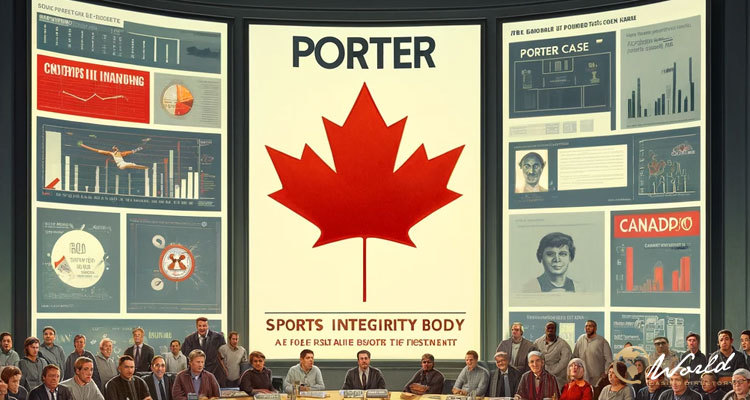Canada is fighting against irregularities in the sports betting industry, and the most recent step is including a sports integrity watchdog, whose duty is to ensure that the policies are strong enough to prevent competitive manipulation in the industry, as well as ensure there isn’t match-fixing in any level of sports competition.
Toronto Raptors’ player banned:
The first draft of the new program is available, and it was created and published on Wednesday, April 17, 2024, by the Canadian Centre for Ethics in Sport (CCES). Its main mission is to prevent any manipulation in sports competitions in Canada.
On the same day the draft was released, the NBA banned Jontay Porter, the former backup center of the Toronto Raptors. He was accused of being involved in betting irregularities related to his performance. The CEO of the sport integrity body, Jeremy Luke, hopes that this ban will be a warning to all Canadians involved in similar activities. He said: “People are becoming more aware of this risk, or at least aware of this risk now. It’s really important that we put in place mechanisms to prevent, or at least to mitigate, the risk as much as we possibly can.”
Porter was accused of giving away confidential information about the games to fans who used them to place their bets. He also didn’t participate in at least one game for reasons related to betting, and he also placed bets on league games. According to Luke, the punishment he got didn’t surprise the authorities. He added: “I thought (the NBA) needed to take significant action in this particular case, but I wasn’t also surprised with the situation itself. The legalization of single event sports betting and the proliferation of advertising certainly increases the risk for competition manipulation.”
Among other issues, Porter was pretending he was sick to avoid playing in a Raptors game in Toronto so he could affect the bets.
The Alcohol and Gaming Commission of Ontario (AGCO), a body that regulates betting in the province, joined forces with the Ontario Provincial Police Bureau to investigate the case further. After the investigation, Porter was accused of violating Section 209 of the Criminal Code of Canada, which doesn’t allow cheating while playing or betting to defraud another person deliberately. However, CCES and other parties claim that section isn’t robust enough.
CCES understands the importance of this issue, so the body decided to hold symposiums to discuss the matter in 2019 and 2023. After that, white papers were published, and the authorities asked for stronger federal policies to help regulate sports betting.
Prevention of the issue:
CCES and the Canadian Olympic Committee were included in writing the draft of the Canadian Program to Prevent Competition Manipulation. The working group for writing a draft included various organizations for national sports such as badminton, basketball, cross-country skiing, curling, hockey, racquetball, soccer, speed skating, and squash. AthletesCAN and Sports Canada were also included.
If the proposal is accepted, one of the first steps would be to educate athletes, coaches, and other interested parties about the issue. CCES would also get the right to administer the new policy on behalf of its partner sports organizations.
As St. Albert Gazette reports, Luke commented: “That’s similar to the way that anti-doping works in Canada, where you have one organization (CCES) that’s independent of sport that administers the policy on behalf of sport. That way you can have confidence that the organization has the necessary authority and can move forward with the disciplinary proceedings that might be necessary.”
The CCES intends to make the country sign the Council of Europe Convention on the Manipulation of Sports Competitions (Macolin Convention), which will help to establish clear laws regarding sports betting and manipulations during the competition.



